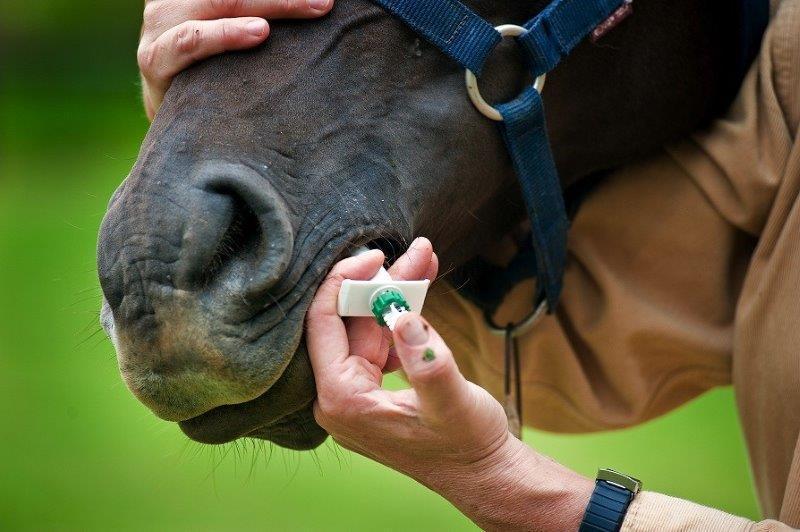by Jolee Stegemoller
The parasite spectrum that plagues horses has evolved over time along with our knowledge and ability to deal with them. The current problem in equine parasitology is that many parasites have developed resistance to some of the deworming medications. Many goals exist on controlling our equine parasite load and deworming is only part of the equation.
Horses should have a fecal egg count performed at least once per year to help us evaluate their current parasite load and guide deworming methods. Ideally, 2 weeks after a horse is dewormed, a fecal egg count reduction test should be performed to evaluate the efficacy of the utilized dewormer. This helps us to know if parasites are developing resistance and helps to ensure that a horse’s parasite load is being decreased. Fecal egg counts should be performed between April and September, 80-90 days after the horse’s last deworming.
In addition to parasite control with dewormers, environmental control is also important. Horse pastures should have manure removed frequently and spread on a “dormant” pasture in the hot summer months. This allows the parasite eggs to be killed via exposure to ultraviolet light. Composting manure also helps kill eggs that will be spread on pastures.
The most troublesome parasites we see in horses are large strongyles, small strongyles, ascarids (roundworms) and tapeworms. The large strongyles, ascarids, and tapeworms can cause colic and intestinal blockages and small strongyles and ascarids can contribute to diarrhea and weight loss.
So, is it time to deworm your horse? Bring a fecal sample to Alpine Animal Hospital and we will be able to tell you!

